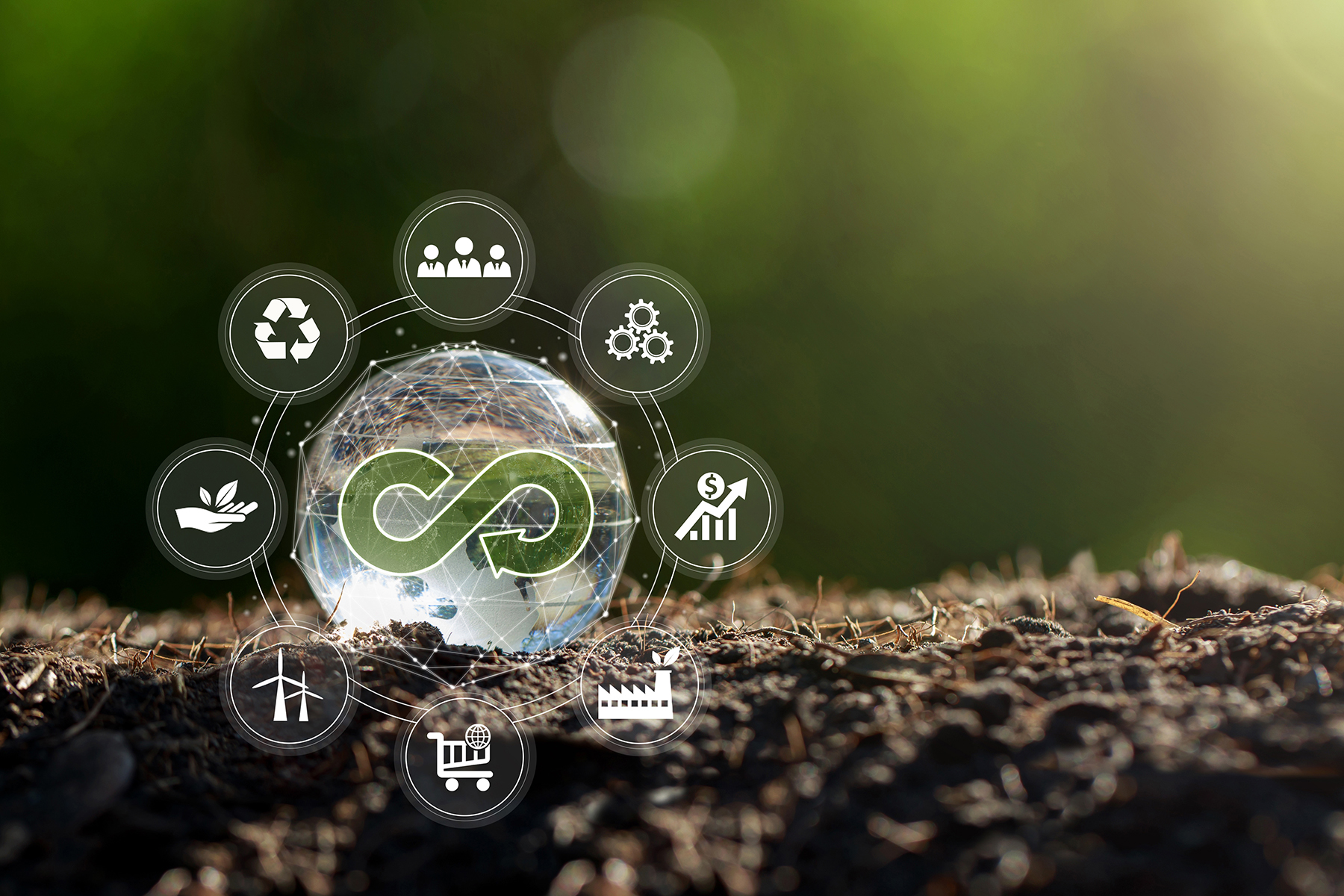What is circular economy and the REP law?
Circular economy is a model of production and consumption that is ethical and establishes a commitment of producers and consumers with the environment, encouraging good practices, like renting, sharing, reusing, repairing, renovating, and recycling each of the materials involved in the making of a product, with the objective of extending its lifespan, reducing its carbon footprint or its impact on the environment behind its production.
Circular economy is different from the traditional model that promotes programmed expiration, because the first model sees value on a product that can last for as many years as possible and that materials used in its production and packaging can be reused, recycling it being its last stage of life.
It also involves the stage of the product manufacture process, preferring the ones that come from sustainable sources, also respecting employee labor rights and that can create instances of well-being in the community that they belong to.
Nowadays, it’s fundamental to carry out this kind of economy because the raw materials are finite and the demand, with the global population growth, has increased. The negative impact that the extraction of raw material has on the environment has become unsustainable, not even considering the pollution of, for example materials like plastic, highly used in different industries like packaging and that for many generations has only been considered as a material of a single use and then it’s disposed.
The biggest challenge of our society is to change this culture of “use and dispose” on every level, from production to consumption, and this is why new regulations are needed, that guide us in the correct way of producing and consuming so we can reduce the impact on the environment.
REP law
The law No. 20920, commonly known as REP (Producer Extended Responsibility and Recycling Law) is a Chilean law that looks for generating an active attitude on behalf of the producer of a priority product to be responsible of the waste that its production generates, and to innovate so whatever is produced can be reused and is made with recyclable materials with the final purpose of protecting the environment and people’s health https://economiacircular.mma.gob.cl/ley-rep/
According to the definition of the OCDE (Organization for the Cooperation and Economic Development), REP is “an approach of an environmental policy in which the responsibility of a producer towards a product is extended to the stage post-consumer in the lifespan of a product”.
The producer, under this law, must create procedures to reduce the waste involved in the production and distribution of their products, taking into account the are sold in the country. The State, to contribute with this task, has assigned funds to finance projects, programs and actions of the town councils to minimize the generation of waste and promoting its reuse and recycling.
Priority product: it’s defined as a substance or object that once it becomes waste, given its volume, danger or presence of usable resources, is subject to the obligations of the producer extended responsibility, consenting to this law. In their list we can find:
- Lubricating oils
- Electric and electronic devices
- Batteries
- Packaging
- Tires
The producer extended responsibility will apply to the categories or subcategories defined on the corresponding supreme decree that establish goals and other obligations associated to priority products.
Lastly, there is a procedure to supervise the compliance of the law from all parts involved in the process and the penalties for the ones that insist on breaking it.
There is now another law associated to this one, concerned on recycling and the valuation of containers and packaging, that took effect on March 16, 2021, when it was published on the Chilean Official Journal. This way, the consumer also takes an active role about the environmental policies since the government will demand companies to provide recycling trucks in different places of the country, making this service accessible to all and to democratize it. In this scenario, the role of the company will be to manage the collecting and recycling of the products differentially.
Example
The REP law seeks that the producers innovate on the creation on individual management systems. For example, a company that makes detergent will have to formulate the product so it’s biocompatible and biodegradable to avoid polluting waters. But also, the company will have to make sure that their packaging is made of environmentally friendly raw materials, must have a long lifespan, and that their components can, finally, be recycled. For this to happen, it’s necessary to implement a business model that allows consumers to reuse the containers, providing spots to refill the detergent, promoting this habit with financial rewards (lower cost on refill) and recycling the containers (something a person could do in the same spot) that have reached the end of their life cycle. In addition, producers will have to be in charge of collecting and recycling the containers and they could even build a plant that cleans the water (after the use of detergent) or that reuses it in other kind of operations.
Circular economy is an initiative that is friendly with the environment and the lives of people, so all companies should consider adding this model to their business.
The participants of the supply chain are also involved in this initiative, from the producer to the consumer, to become sustainable agents.


